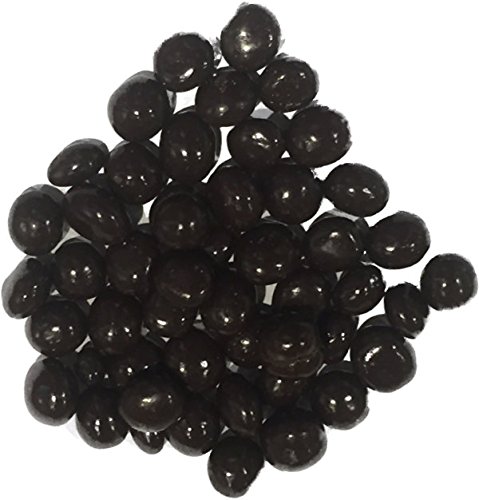How Coffee Bean Has Become The Top Trend In Social Media
What Are Coffee Beans?
The coffee beans you use to make coffee are actually seeds of a fruit known as the coffee cherry. The coffee plant is perennial, meaning that it will grow each year.
Coffee beans are high in concentrations of specific compounds - including caffeine, and therefore should be consumed in moderation. Find out more about this well-known seed!
Origin

The seeds that are roasted in the coffee plant are used to create the coffee beverage that is brewed. The beans are a favored and profitable international commodity. The coffee plants are evergreen, woody shrubs that grow in tropical climates. The majority of the world's beans is grown in the Bean Belt, which includes those areas that lie between the Tropic of Cancer and the Tropic of Capricorn.
The most widely-known myth of coffee's origin starts with the goat herder Kaldi in Ethiopia. He discovered that the bright red berries produced by certain coffee plants stimulated his goats. Kaldi shared this discovery with an abbot at the nearby monastery who had made a drink using the berries. The energizing properties of the berries spread from there.
Presently coffee beans are made by two main varieties of Coffea plants: Arabica and Robusta. The latter is primarily found in Africa and Indonesia and is generally less expensive than arabica. In addition to the major varieties, there are also smaller, specialty beans that are a mix of arabica and robusta. They are known as Peaberries and have a scrumptier taste than regular beans.
During the process of roasting beans lose their moisture, which can result in them becoming bitter and stale. To avoid this, it is crucial to use only fresh, top quality beans for your coffee.
Flavor
The bean's variety, temperature and processing method can affect the four components of taste: acidity and bitterness, sweetness and saltiness. The degree of these elements can create a wide variety of flavor profiles that range from fruity and sweet to nutty and even smoky.
When
coffee beans online Coffeee are heated they react with amino acids in the seed, resulting in hundreds of aromatic compounds that affect the flavor profile of coffee beans. This reaction is referred to as the Maillard Reaction, and it occurs in virtually all cooking. The result is that the flavor of roasted coffee is a reflection of these compounds.
The Maillard Reaction is responsible for the overall flavor, however volatile and nonvolatile substances also play a role in the taste of coffee. The taste of a unroasted or green bean may be earthy, fruity, floral or chocolaty. Bitterness is often due to roasts with a full body that contain more caffeine, but it can also occur because of improper brewing techniques or storage.
Flavored coffee beans are flavored with flavor oils on them that help preserve the beans and provide a unique flavor and aroma. These oils that are flavored can be made up of chemicals and natural flavors, including vanilla, cinnamon and chocolate. The flavors stick to the beans by using the chemical compound polyphenol.
Health Benefits
Coffee beans contain a vast variety of nutrients that promote health like magnesium, potassium, and B vitamins. They are also a good source of antioxidants to help fight the oxidative stress (which can lead to chronic diseases like cancer and atherosclerosis). The antioxidant chlorogenic acids found in coffee beans are particularly effective against obesity-related diseases such as diabetes and high cholesterol levels.
Coffee is a natural source of energy that helps people feel more alert. Its caffeine boosts neurochemicals within the brain, which enhance the vigilance and memory, improves cognitive function and helps to regulate blood sugar levels within the body. Research has shown that moderate consumption of coffee can reduce the risk of developing Parkinson's disease and dementia, and also increase happiness, mood as well as energy and concentration.
Anti-aging The antioxidants (including caffeine and the chlorogenic acids) in coffee act as an natural moisturizer for skin, boosting cell turnover, which reduces wrinkles and fine lines. They also possess UV-protection capabilities blocking light and preventing sun damage to skin.
Anti-depressant - Coffee beans are a natural antidepressant. They boost serotonin levels as well as dopamine levels in the brain, thereby increasing the levels of happy hormones. It also helps reduce pain and inflammation, acting as a natural painkiller and increasing the effectiveness of painkillers. Coffee also has cafestol and kahweol. These are diterpene esters that have lipolytic properties in the adipose layer, aiding in fighting cellulite.
Caffeine
Coffee is a well-loved drink across the globe. It is now an integral part of most morning routines. Coffee beans are actually seeds of a plant called the coffee plant or coffee cherry, and they contain the natural stimulant, caffeine. The caffeine content in coffee can vary depending on how it is roasted and prepared. It can also be brewed. There are a few guidelines that can help you select the right coffee.
The average coffee bean has approximately 2 milligrams of caffeine, however the exact amount varies dependent on the size of the bean and the amount of roasting it has. There is a popular belief that dark-roasted beans have more caffeine in them than light roast ones, but this is not the situation. Dark roast coffee beans contain less caffeine than light roasts because of their lower density. However, the amount of caffeine is similar.
The recommended daily limit for caffeine is 400 milligrams. A typical cup of coffee contains 95 milligrams. If you're not sensitive to caffeine staying within this range isn't likely to cause any adverse consequences. Caffeine isn't harmful to people who aren't sensitive. However it is crucial to monitor how much caffeine you take in and be cautious about overdoing.
